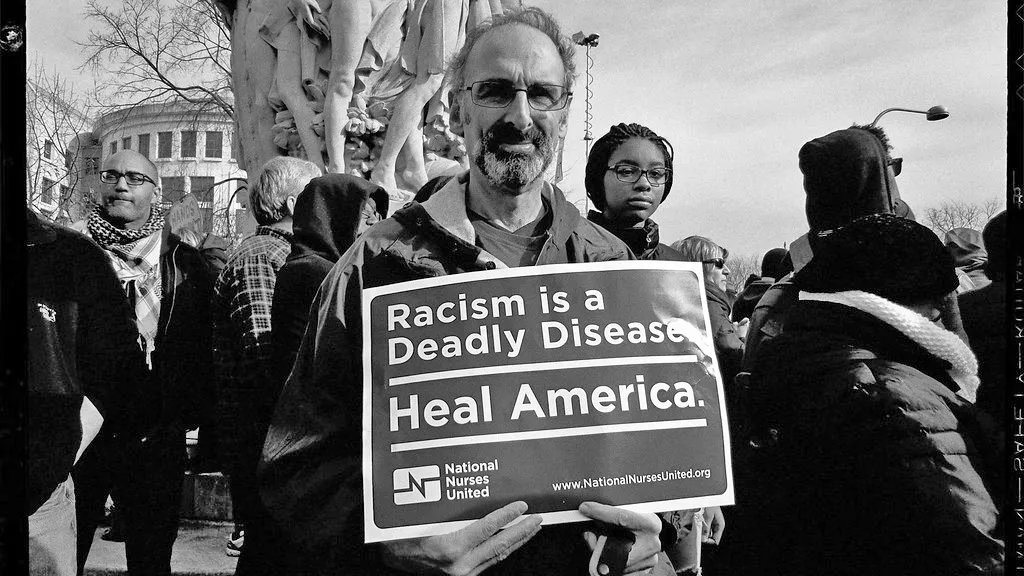Joe Gutierrez | CSUSB Office of Strategic Communication | (951) 236-4522 | joeg@csusb.edu

When the San Bernardino County Board of Supervisors adopted a resolution in June declaring that racism is a public health crisis, it became the first county in California to do so. That declaration will be the topic of the next Conversations on Race and Policing.
“Declaring Racism a Public Health Crisis: What It Means and Where Do We Go from Here,” presented by Cal State San Bernardino’s John M. Pfau Library, will take place virtually at 4 p.m. Wednesday, Sept. 30.
The program can be accessed from a PC, Mac, Linux, iOS or Android at https://csusb.zoom.us/j/97960458784.
This will be the 18th event in the series that began in June.
“The issue of racism as a public health crisis came to the forefront following the global response to the May 25, 2020, death of George Floyd in Minneapolis, and the impact of COVID-19 on the Black community and discussions with local community advocates,” a statement from the county says. “The resolution states that racism results in disparities in family stability, health and mental wellness, education, employment, economic development, public safety, criminal justice and housing.”
As part of adopting the declaration on June 23, the supervisors instructed the county staff to form a new Equity Element Group of the Countywide Vision project with the goal of promoting and increasing equity in the county.
Panelists for the next conversation will be:
- Diana Alexander, deputy executive officer for San Bernardino County and an alumna of CSUSB's MPA program. A member of the County Administrative Office team, Alexander is collaborating with the county chief operating officer in overseeing the county’s equity efforts in support of the declaration.
- Samuel J. Casey, the senior pastor and co-founder – along with his wife, Pastor Tamika Casey – of New Life Christian Church in Fontana. He also serves as the executive director of Congregations Organized for Prophetic Engagement, a coalition dedicated to building effective leadership among clergy, community members and parents through local, regional, and national trainings that build the capacity of individuals to revitalize the communities in which they live, work and worship.
- Ben Reynoso is a grassroots community organizer and former candidate for the San Bernardino City Council. He is an advocate for equity in all arenas of society and serves as economic organizer at Inland Congregations United for Change.
Conversations on Race and Policing began in the aftermath of the May 25 death of George Floyd while in the custody of four Minneapolis, Minn., police officers. A video of the incident posted on social media has led to widespread protests, the firing of four police officers, the arrest of one officer on a second-degree murder charge, the other three on charges of aiding and abetting second-degree murder – and a spotlight worldwide on race and policing.
Previous forums also are posted online (more recordings will soon be available for viewing) on the CSUSB History Club Lecture Series YouTube channel:
- “Race and Policing, A Panel Presentation and CSUSB Campus Conversation” on June 3;
- “Conversations on Race and Policing (2), CSUSB Panel Presentation and Discussion” on June 10;
- “Conversations on Race and Policing (3), CSUSB Panel Presentation and Discussion” on June 17;
- “Conversations on Race and Policing (4), CSUSB Panel Presentation and Discussion” on June 24;
- “Conversations on Race and Policing (5), CSUSB Panel Presentation and Discussion” on July 1;
- “Conversations on Race and Policing (6), CSUSB Panel Presentation and Discussion” on July 8;
- “Conversations on Race and Policing (7), CSUSB Panel Presentation and Discussion,” on July 15;
- “Conversations on Race and Policing (8), CSUSB Panel Presentation and Discussion,” on July 22;
- “Conversations on Race and Policing (9), CSUSB Panel Presentation and Discussion,” on July 29;
- “Conversations on Race and Policing (10), CSUSB Panel Presentation and Discussion,” on Aug. 5, which discusses in detail what “defunding” and “abolishing” police mean, beyond the political rhetoric, with Alex S. Vitale, author and professor of sociology at Brooklyn College, coordinator of the college’s Policing and Social Justice Project, and author of “The End of Policing; ”
- “Conversations on Race and Policing (11), CSUSB Panel Presentation and Discussion,” on Aug. 12;
- “Conversations on Race and Policing (12), CSUSB Panel Presentation and Discussion,” on Aug. 19, and
- “Conversations on Race and Policing (13), CSUSB Panel Presentation and Discussion,” on Aug. 26.
On June 16 the College of Arts and Letters presented “Structural Racism, Civil Disobedience, and the Road to Racial Justice in the Age of COVID-19,” which is also posted on YouTube.
The university’s June 9 memorial for Floyd also focused on the Black Lives Matter movement.
And, related to the university’s conversations series, Netflix is making the 2016 Ava DuVernay film, “13th,” available for free on its YouTube channel. Combining archival footage with testimony from activists and scholars, director Ava DuVernay’s examination of the U.S. prison system looks at how the country’s history of racial inequality drives the high rate of incarceration in America.
The ongoing Conversations on Race and Policing series is hosted by CSUSB students Marlo Brooks and Yvette Relles-Powell.
The series is organized by Brooks and Relles-Powell, CSUSB faculty members Mary Texeira (sociology) and Jeremy Murray (history), Robie Madrigal, public affairs/communication specialist for the CSUSB John M. Pfau Library, and community member Stan Futch, president of the Westside Action Group.
For more information, contact Robie Madrigal at rmadriga@csusb.edu or Jeremy Murray at jmurray@csusb.edu.